Fresh protests throw Egypt into turmoil
Hosni Mubarak calls out troops and imposes curfew across the country.
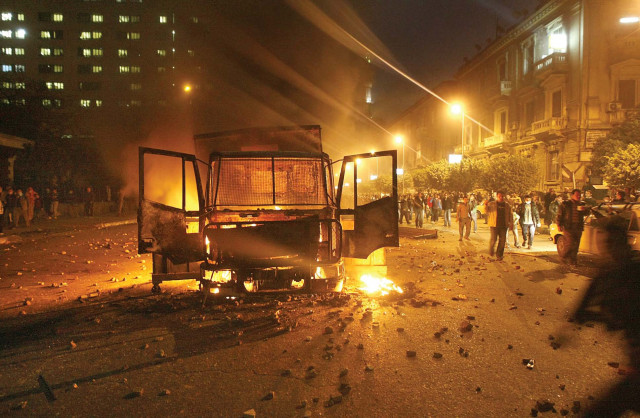
Protesters clashed with police throughout the day and into the night, defying a curfew and setting fire to some buildings. Protesters continue to gather and march hours after it went into effect and government forces fired on them with tear gas.
At least five protesters died in demonstrations to oust Mubarak across greater Cairo, medical sources said. Some 870 protesters were wounded in the demonstrations, some of them in a serious condition. Police officers were also wounded, but numbers were not immediately clear, the sources added.
Protesters torched the headquarters of the ruling National Democratic Party in Cairo, state television reported, as anti-government protests raged into a fourth day. Hours later they stormed the state television building in central Cairo, Al Arabiya television quoted its correspondent as saying. But the protesters were later dispersed by the army, a witness said. State television could still be seen broadcasting. A convoy of armoured vehicles rumbled through a Cairo street amidst cheers from a crowd, live television footage showed.
In central Cairo sounds of gunshots were heard in the streets. Protesters clashed in Kasr el-Aini street near parliament, the prime minister’s downtown office and other government buildings, a witness said. There were more than 1,000 demonstrators and thick smoke in that area.
Unconfirmed reports from Al Jazeera say the army and police forces are clashing in Cairo. These reports have come after reports from Al-Misriyah TV saying army leadership extended the curfew to the whole country.
In the eastern city of Suez tanks were seen moving in the streets in front of the charred remains of a police station set alight the night before, a Reuters witness said. Dozens of protesters climbed on the tanks, said the Reuters witness who saw at least five tanks. They tried to talk to soldiers who tried to wave them off. One tank had about 25 protesters on it, he said.
In Alexandria, protesters overran police lines and torched police trucks, a witness said. In several cities, protesters stormed the offices of the ruling National Democratic Party, witnesses reported.
In some parts of Cairo, protests were peaceful. Dozens of people prayed together on one road. In Giza, on the city outskirts, marchers shook hands with the police who let them pass peacefully.
The White House said it was “very concerned” about events in the country but warned that the government should respect the rights of its people and restore social networking and Internet services. The US State Department urged Egypt to respect its people’s rights and allow them to communicate openly. “Events unfolding in Egypt are of deep concern. Fundamental rights must be respected, violence avoided and open communications allowed,” spokesman P J Crowley said in message. “Reform is vital to Egypt’s long-term well-being. The Egyptian government should view its people as a partner and not as a threat.”
“There is daily contact between the US and Egyptian governments through various channels, including the embassies and other organisations in which President Obama’s messages and concerns are relayed,” a White House spokesman said.
French Foreign Minister Michele Alliot-Marie called for restraint and dialogue as President Hosni Mubarak summoned the army to deal with thousands of protesters.
Egypt needs a period of transitional rule, new parliamentary elections and amendments to the constitution so a president can stand for only two six-year terms, the head of the opposition Wafd party said on Friday.
His comments, made in a televised statement, follow a day of violent protest calling for an end to the rule of President Hosni Mubarak, 82, in power for five consecutive six-year terms. Egypt has been under emergency rule throughout Mubarak’s term in office. The government says it is used to combat terrorism. Critics say it is used to stifle any dissent. Elections were due to be held in September and until now few had doubted that Mubarak would remain in control or bring in a successor in the shape of his 47-year-old son Gamal. Father and son deny that Gamal is being groomed for the job.
Published in The Express Tribune, January 29th, 2011.

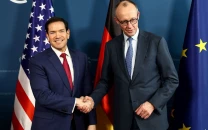
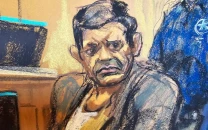
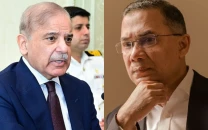
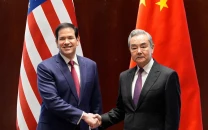

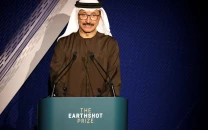












COMMENTS
Comments are moderated and generally will be posted if they are on-topic and not abusive.
For more information, please see our Comments FAQ